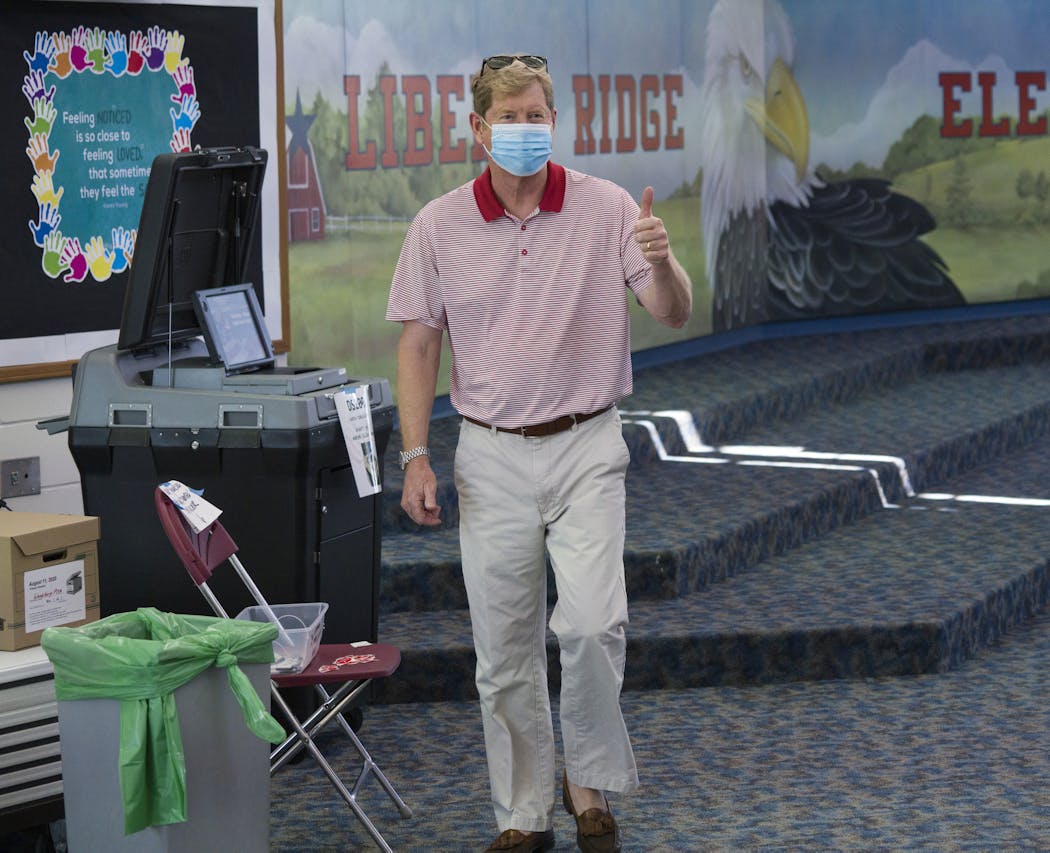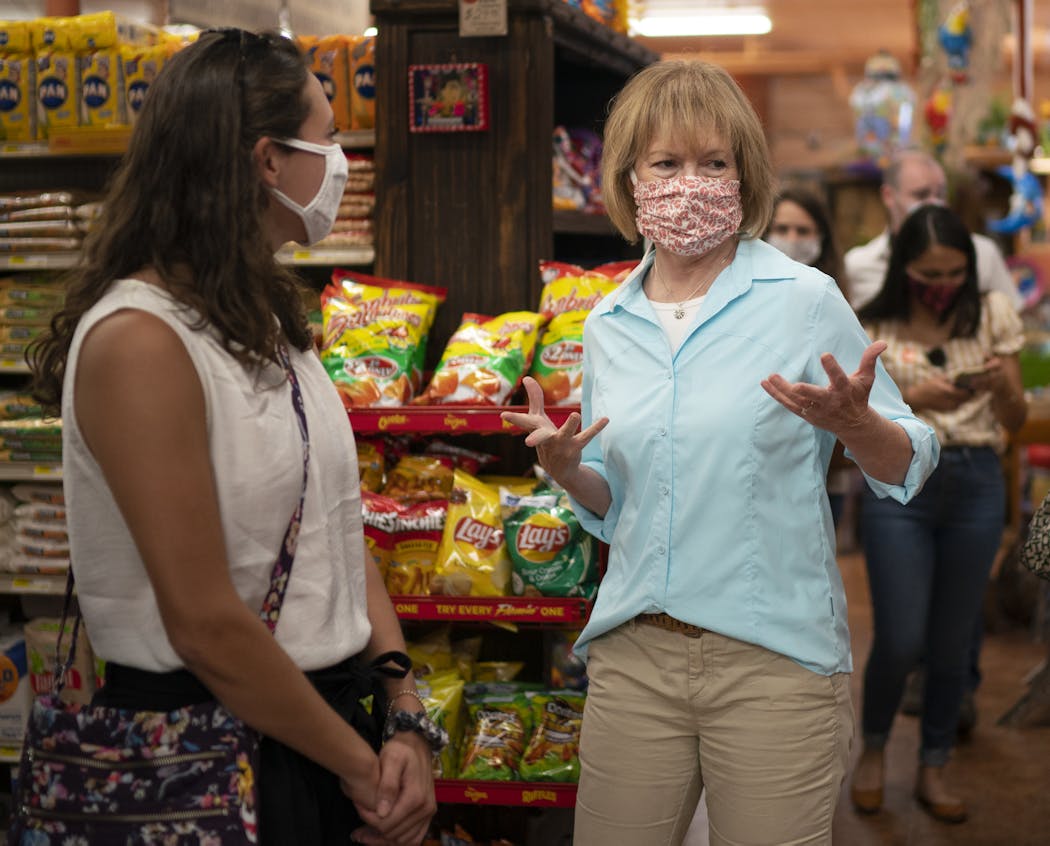Democratic U.S. Sen. Tina Smith and GOP challenger Jason Lewis won their respective primaries on Tuesday, setting up a November showdown where Smith aims to finally nail down a full six-year term and Lewis tries to reclaim a Senate seat for Minnesota Republicans for the first time in more than a decade.
This year's Senate race is the only statewide office on the ballot in Minnesota in 2020. Smith and Lewis both faced party challengers on the primary ballot, but both handily won their races.
Smith has positioned herself as a progressive advocate for Minnesotans on Capitol Hill as she pushes for broad access to health care, affordable prescription drugs and economic relief for COVID-strapped people and communities. She recently came out in support of legalizing recreational marijuana, and is a longtime ally of Planned Parenthood.
Lewis has embraced GOP skepticism of Minnesota's pandemic response, questioning business shutdowns and mask mandates. He has picked up on the "law-and-order" messaging of President Donald Trump in the wake of recent civil unrest in the Twin Cities, forcefully opposing calls by some progressives to slash funding for police departments.
Both candidates face certain headwinds. Polls continue to show that Smith, despite having been in the U.S. Senate for more than two years, still has relatively low name recognition in the state compared to more politically seasoned Democrats like Sen. Amy Klobuchar and Gov. Tim Walz.
Lewis is running against Minnesota's now long-standing trend of electing Democrats to statewide office. The last time a Republican won a statewide race in the state was 2006; the last Republican senator was Norm Coleman, who left office in 2009 after a narrow loss to Smith's predecessor, Al Franken.
With less than three months to November's general election, Lewis is still widely seen as an underdog. The Cook Political Report, which rates Senate races around the country, lists Smith's chances of holding the seat as "solid" — their strongest rating.
There has been minimal polling of the race to date, though a poll released Tuesday by Emerson College showed Smith leading Lewis 48% to 45%, within its margin of error.
Lewis is banking on a strong turnout in November by supporters of the president, whose re-election campaign has targeted Minnesota in hopes of picking up a handful of states that he lost narrowly in 2016. Lewis in turn has wrapped his arms around Trump's policies and leadership, arguing that picking off Minnesota's Senate seat would help the GOP shore up its endangered U.S. Senate majority.
As of the last Federal Election Commission filing deadline on July 22, Smith had raised $10 million for the race and had $5.8 million in the bank. Lewis had raised $2.5 million and had $992,000 on hand.
Smith, 62, was a longtime DFL insider and adviser to some of the party's biggest names. A former marketing executive and one-time top official with Planned Parenthood, Smith served as chief of staff to former Minneapolis Mayor R.T. Rybak, and went on to serve the same role with former Gov. Mark Dayton when he took office in 2011.
Their partnership was so successful that, four years later, Dayton asked Smith to join his re-election campaign as candidate for lieutenant governor.
In late 2017, Franken resigned after a group of women accused him of unwanted touching. Dayton appointed Smith as his replacement in the Senate. In 2018, she defeated Republican Karin Housley to fill the final two years of Franken's term.
Lewis, 64, was well-known to Minnesota Republicans after years as a conservative radio talk-show host on Twin Cities stations. In 2016, he parlayed that fame into a political run by winning Minnesota's Second Congressional District seat in Congress.
But years of provocative remarks on the air about women, race and other subjects made him a frequent target of criticism by Democrats. In 2018, he lost the House seat to Democratic Rep. Angie Craig.
Smith and Lewis won their respective party endorsements this year, but each had four challengers on the Senate primary ballot.
Also vying for the seat were Democrats Steve Carlson, Ahmad Hassan, Paula Overby and Christopher Lovell Seymore; the other Republican contenders were Bob Carney, Cynthia Gail, John Berman and James Reibestein.
The Latest | 'Catch-and-kill' strategy to be a focus as testimony resumes in Trump hush money case
Biden will speak at Morehouse commencement, an election-year spotlight in front of Black voters



